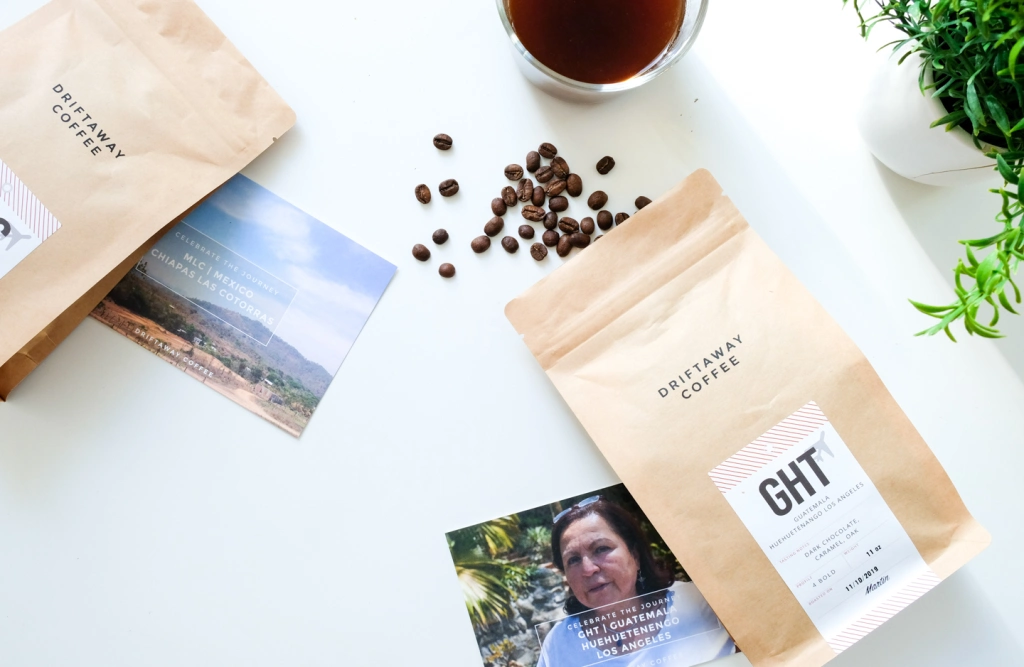The National Coffee Association welcomed nearly 800 attendees from the coffee world and beyond to our 2024 Convention, held March 7–9 at the JW Marriott in Nashville, Tennessee. The hotel was abuzz as the coffee community came together to share knowledge, insights, and industry innovations. Attendees connected with each other between sessions and in the Business Solutions Pavilion, Java Lounge, and evening receptions. We want to thank our sponsors, exhibitors, speakers, attendees, and staff for helping to make this year’s Convention such a success.
This year’s Convention theme, Fueling the Future, captured the essence of the event, which dove into tech innovations and consumer trends, with a look forward to coffee’s bright future. The NCA broke new ground this year, partnering with ClimeCo to work toward a full carbon offset at the Convention, making it one of the first coffee conventions to strive toward carbon neutrality.
Keynote speakers included Cheryl Hung of Dig Insights, who previewed the 2024 National Coffee Data Trends (NCDT) report; G. Scott Clemons of Brown Brothers Harriman & Co., who offered an overview of current financial markets and an economic forecast; and polar explorer and mountaineer Alison Levine, who shared lessons on high impact leadership.
The breakout sessions focused on a wide variety of timely topics, including the use of AI in the coffee supply chain, ENERGY STAR® resources, and the roles that regulatory traceability and new import laws play in a sustainability-driven landscape. Sessions on cold coffee trends and instant coffee helped keep attendees informed as cold brew and ready-to-drink continue to grow.
The NCA once again supported the International Women’s Coffee Alliance, which held a fundraising luncheon at the Convention.
Attendees also enjoyed a sit-down lunch during the NCA’s annual awards presentation. The NCA honored John Boyle with the Distinguished Leadership Award, in recognition of his exemplary leadership, contributions to the advancement of the coffee industry, and service to the NCA over the course of his 35-year career. Kathryn Lawson received the Volunteer of the Year award for her efforts in bringing expert scientific insights and critical analysis to the coffee community. NCA presented the Origin Charity of the Year Award to Food 4 Farmers for their strategic, innovative, and implementation excellence, and for their commitment to bettering the lives of producers, their families, and communities at origin. NCA also announced Solidaridad Network as the Origin Charity of the Year Finalist.
Over 100 attendees volunteered their time to help Nashville students. This year’s Coffee Gives Back Day of Service benefitted PENCIL, a non-profit organization that builds strategic partnerships between community groups and the needs of Metro Nashville Public Schools (MNPS). Volunteers packed book bags with classroom supplies at the DG PENCIL Box warehouse and worked with students on ongoing projects at two local schools. After school was released for the day, participants completed clean-up, organization, and gardening projects.
This year’s Convention included new networking events that created additional opportunities for attendees to connect with each other. NCA kicked off the Convention with an orientation reception for new members and first-time attendees. The “Deep Dive” Networking Discussions provided a forum for attendees and speakers to explore questions on key market segments, sustainability and innovation, and other top-of-mind issues they face, and the Delegate Dine-Around offered attendees the flexibility to explore Nashville while meeting up with new friends.
The festivities were in full force in Music City! Each day of the Convention included a diverse array of educational sessions and closed with an evening reception where attendees could kick back, catch up with old friends, and connect with new colleagues from across the industry. Coffee breaks and receptions complemented the educational sessions and offered attendees additional opportunities to build lasting relationships across the coffee community.
We invite you to join us next year in Houston, Texas—a city full of culture and flavor—for the 2025 NCA Convention, March 6–8. Sign up to receive Convention updates.
Have speaker or topic ideas for the 2025 NCA Convention? Please complete this form to share your ideas.
Get ahead of the crowd and inquire now about a 2025 NCA Convention sponsorship or tabletop reservation.
Thank you again for joining us in Nashville, and we’ll see you in Houston!

















